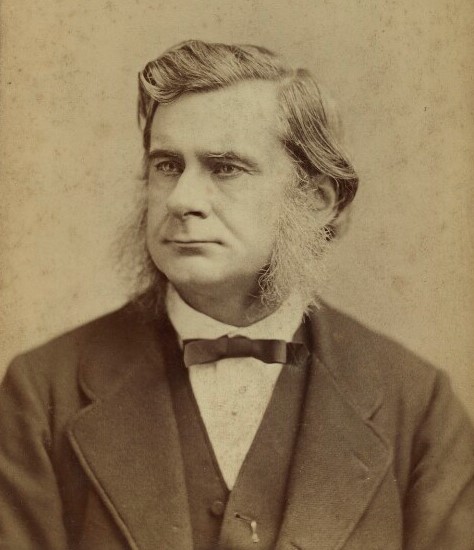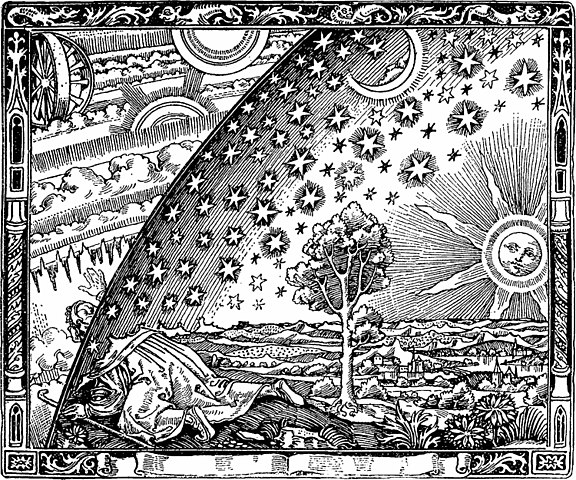AWESOME
I am an atheist. I am an agnostic. I’m an agnostic atheist. Most people understand these words poorly and like them even less. I don’t proclaim my irreligious identity very often, but increasingly I feel that I should. I know that there is nothing wrong with atheism, although public opinion is not on my side. Perhaps it’s time to stand up and explain why I believe atheism is probably true, why agnosticism is certainly right-minded, and how these twin tenets can even be good for the world.
- I. What Are Agnosticism And Atheism?
- II. Why Agnosticism?
- III. Why Atheism?
- IV. But Isn’t It “Bad” To Be Atheist Or Agnostic?
- V. Upshot
- VI. Citations
I. What Are Agnosticism And Atheism?
The words atheism and agnosticism both begin with a-, the Greek prefix meaning “without”. Each word means “not religious” in its own sense. When we say that someone is religious, we could be referring to what he believes (God, the supernatural, the afterlife, miracles, etc.) or how he holds that belief (a subjective sense of absolute certainty that is not objectively demonstrable to outsiders, based on faith, emotion, authority, personal conviction, etc.)
A·theism = “A” (Without) + “Theism” (Belief in God / gods).
An atheist does not believe in God or the other supernatural elements that religious people do. How Life Got This Way Chapter 5 discusses the neurological basis of our inborn belief in gods, spirits, and a supernatural world – probably a side effect of humans’ very strong theory of mind and the power of abstract thought. Theism is a human instinct, so atheism has always been a minority point of view. Nevertheless, some strands of atheism can be traced to the dawn of the philosophical age in the -1st millennium. Modern atheism is an outgrowth of the 18th century European Enlightenment. This history is traced in HLGTW chapters 2 – 4.
A·gnosticism = “A” (Without) + “Gnosticism” (Mystical knowledge).

Agnosticism refutes the religious way of holding beliefs, whatever those beliefs are. An agnostic recognizes that belief goes beyond the bounds of knowledge: there are many things I can believe that I can’t really know or prove to others. Unlike atheism, agnosticism is a relatively new term, a realization of the scientific age. The word agnostic was coined by Thomas Henry Huxley, a 19th century English scientist and philosopher. 1 He defined it in opposition to religious people who “were quite sure that they had attained a certain ‘gnosis’ – had … successfully solved the problem of existence; while I … had a pretty strong conviction that the problem was insoluble.” 1 In his essay Agnosticism, Huxley keenly advised, “Do not pretend that conclusions are certain which are not demonstrated or demonstrable.” 2
Agnosticism might sound obvious in the abstract. I think we all understand the difference between “I believe it will rain tomorrow” and “I know it will rain tomorrow”. Many times, our “knowledge” about the rain is proven incorrect and we are forced to recognize that we had a false belief. But when that concept is applied toward religion, most people find it impossible to apply the same standard. Religious people are absolutely convinced that their beliefs are true. In fact, religious / supernatural beliefs are the classic example of unfalsifiable ideas. Nobody can disprove them! It’s like always believing that it will rain gold coins – not tomorrow, but “someday”. Even if it hasn’t rained gold coins for the last 10,000 days, you can always hold on to the belief that it will eventually. Soon you’ll probably feel emboldened to say you “know” it will rain gold coins someday, because in the end either you’ll be proven right or at least you won’t be proven wrong.
Religious thought predates the age of reason by hundreds of millennia. It is instinctual, and as such it involves many logical fallacies:
• “If it could be true, then it must be true.” (Aristotle’s classic “confirming the consequent”)
• “If I believe it, then it must be true.” (Gnosticism)
• “If my family or community teaches it, then it must be true.” (Peer pressure)
• “If it is comforting or pleasant to believe, then it must be true.” (Denial)
The agnostic is the party pooper who finally says, “But you don’t really know, do you?”
II. Why Agnosticism?
Maybe there was once a time when a person could spend his entire life in a religious bubble, knowing only one creed for his entire life. That is certainly not possible anymore. I grew up as a Christian, but I was fully aware that my Christian community taught different scriptures from Judaism, Islam, Buddhism, Hindu, and numerous other religions. I had friends and neighbors from different faiths. I couldn’t help but ask, “Which of us is right?”
I ran a thought experiment. What if Earth were visited by an alien who had never seen or heard of any of the world religions? If each religion were to present the alien with its supporting evidence, which one would make him say, “Yes, you’re right – this one is the truth!”? Some of the natural / historic excerpts from scripture could be corroborated (for example, there really was a walled city of Jericho) but the supernatural stories could not. I think the alien would have to call it a stalemate. No religion is convincingly true to people who were not raised within its culture. 2 Religion is a belief, not a truth.
In devising the space alien, of course what I was doing was taking a neutral perspective to remove my biases from the decision-making process. If there is a true religion, it shouldn’t matter what I believe. That is the essence of agnosticism – evaluating evidence objectively at face value, divorced from your own preconceived notions. Changing your mind really doesn’t hurt – don’t be afraid of it!
III. Why Atheism?
“Okay,” a religious person might agree, “My religion is a belief that I can’t prove to you. But I still believe it. You can’t prove my beliefs false either.” In fact, for a few years as a teenager I was an agnostic Christian. Why would someone go further down the path toward atheism and give up on religious belief altogether?
Some people come at atheism from moral or emotional grounds. My path was dispassionate and scientific. I was interested in the epistemology – “How do we know?” No, I can not prove that God doesn’t exist. I just find that (1) the natural world seems to be self-contained and (2) “belief in God” is due more to “belief” than to “God”.
A. The Natural and the Supernatural
B. The Psychology of Religion
III.A. The Natural and the Supernatural
People see themselves reflected in the world around them. When modern humans had the wherewithal to ask where they had come from, the first model they had was themselves. Humans can direct their willpower into making things – tools, clothing, meals, even children. By that reasoning, they probably concluded that we must be here because someone directed his willpower into making us too. When the world works in mysterious ways, we personify it as magic willpower. For most people in most times and places, that “explanation” seemed perfectly adequate.
It’s an incredibly strong instinct, because only in the last few centuries have some people realized that this explanation doesn’t clarify anything at all. A religious person once tried to convince me that we and our world couldn’t have come from a big bang, because “0 + 0 ≠ 1.” “You can’t get something out of nothing,” he said. His conclusion was that we must have been designed by God. He seemed unaware of the paradox that he was trying to resolve one hard question with an even harder one: where did God come from? If it is hard to explain mortals and the material world, it would be even harder to explain super beings in an invisible realm who can make mortals by magic willpower. It’s like saying that 0 + 0 = ∞. So why does God satisfy people as a convincing explanation?

Pre-scientific people only understood a few principles of nature. Beyond that, speculation was useless. Invoking gods was a way of punting the explanation: “We don’t understand how the world works, but there’s someone who does.” People envisioned a dualistic universe: There was the “natural” world that presented itself to our senses, but behind it all were the unknowable spirits of the “supernatural” realm. Renaissance philosophers like Descartes were interested in delineating the boundary between these realms. The popular “Flammarion engraving”, whatever its original intent may have been, is a nice visual metaphor of this perspective.
The essence of the scientific revolution was to show that some “inexplicable” phenomena had natural explanations. The moon goes around the world because it is falling like a cannonball – it just happens to be too far away to strike Earth. Fire burns because chemical reactions release heat and light. Animals reproduce with DNA molecules, which obey chemical laws like other forms of matter. Every small discovery expanded the natural world just a little more, at the expense of the supernatural. After centuries of this, there wasn’t much left for the supernatural world to “explain” anymore, and those explanations were feeling like increasingly far-fetched punts. It started to seem more likely that the entire idea of a “supernatural” realm was a figment of the human imagination.
III.B. The Psychology of Religion
A big part of atheism, then, is the psychology of belief. We can’t discuss religion without addressing the natural human bias to be religious. Without intense educational training, people acquire beliefs by becoming emotionally attached to them. We usually hold a belief either because we want it to be true or because we socially identify ourselves with followers of a particular creed. Almost without exception, people die with the religion that they were born into.
When pressed for evidence, religious believers justify their faith with three recurring themes: scripture or tradition (discussed above), emotional conviction, and the perceived witnessing of miracles or answered prayers. I have asked a few religious people how they “know” that there is a God. None of them claimed to have seen or heard God, but they commonly described a special experience where, “I got a warm feeling inside.” Unfortunately, such a subjective feeling inside one person cannot convince another. We atheists believe that it is strictly in the mind.
Religious persons often speak of prayers that came true or a loved one who survived against the odds. This is a classic example of filtering evidence. Many good things happen without prayer, and many horrible things happen despite it. If we are going to decide if prayer works or miracles are real, we can’t just pick and choose our favorite experiences. One thing that is easy to test scientifically is the power of prayer, and the collective evidence for it is essentially zero. 3
IV. But Isn’t it “Bad” to be Atheist or Agnostic?
Surveys show that religious people distrust atheists, 4 do not feel “warmly” toward them, 5 and do not vote them into office. 6 Why such virulent anti-atheism?!
Religion has served some extremely important social functions in the last 10,000 years. It has bound communities, provided the unimpeachable source for kings’ authority, and deterred immoral behavior by fear of punishment. Organized religion and public morality are easily conflated, having emerged together when people started to live in large settlements. To confuse matters further, Christianity and Islam became aggressively anti-heretical in the Middle Ages. The idea persists that “turning away from God” is a terrible offense.
Religious people may distrust atheists because they believe that we are morally unrestrained. 7 If there is no God to punish us, then what’s to stop us from lying, cheating, and stealing, right? That is a ridiculous stereotype. Atheists are still subject to state law, and we are all judged by the same reputation networks, which are a whole new force to be reckoned with in the internet age. More importantly, though, atheists understand that you shouldn’t have to rely on the fires of Hell to justify good behavior. Morality has its own inherent value. It came from people’s desire to live together in peace, and it should always be at the core of our legal systems. You and I both believe in Good. Maybe we just spell it with a different number of o’s.
Today’s world is pluralistic. Followers of different religions cannot use doctrine to persuade one another of righteous behavior. We have to rely on our common humanity to be humane. This is increasingly urgent, because today’s “cultural divides” are largely religious divides. Division is the very antithesis of religion’s original function.
Religious and irreligious people alike will be sharing the world for a long time. It is important for us to understand and respect each other and not try to force each other out. However, in closing, I am going to make a brutally honest plea to today’s and tomorrow’s youth.
V. Upshot
Yes, religion played an indispensable role in history – but that era has passed. God was a crucial metaphor, a cosmic parent to fledgling civilizations. Now it is our turn to grow up and leave home to strike out on our own. Today’s human activity affects billions of people on a global scale. When we make public policy decisions about economics, war, education, and health, we can no longer afford to leave things “in the hands of God” or to base our actions on ancient mythology and prophecies. If we are going to be stewards of the Earth, then we should do so based on an understanding of how the world really works.
So … how will your descendants remember the third millennium? Will we waste our time fighting about what happens in the next world, or will we unite with the common purpose of making this world the best it can be?
Scot Fagerland
2017 – ‘18
- What is AWESOME thought?
- Next post: ‘W’ is for ‘Worldly’
VI. Citations
- Thomas Henry Huxley, “Agnosticism”, Collected Essays, Vol. 5: Science and Christian Tradition (1889), p. 238. Public domain; available free online e.g. at http://mathcs.clarku.edu/huxley/CE5/Agn.html ↩
- T.H. Huxley, “Agnosticism”, ibid p. 246. ↩
- “Studies of intercessory prayer”, Wikipedia, http://en.wikipedia.org/wiki/Studies_on_intercessory_prayer (accessed 5/30/2018). ↩
- W.M Gervais et al, “Do you believe in atheists? Distrust is central to anti-atheist prejudice”, J Pers Soc Psychol 2011 Dec; 101(6):1189-206. http://www.ncbi.nlm.nih.gov/pubmed/22059841 (accessed 5/05/2018). ↩
- Michael Lipka, “U.S. evangelical Christians are chilly toward atheists – and the feeling is mutual”, Pew Research Center (7/16/14), www.pewresearch.org/fact-tank/2014/07/16/u-s-evangelical-christians-are-chilly-toward-atheists-and-the-feeling-is-mutual/ (accessed and saved 5/05/2018). ↩
- USA Today / Gallup poll, February 9 – 11, 2007. http://news.gallup.com/poll/26611/some-americans-reluctant-vote-mormon-72yearold-presidential-candidates.aspx (accessed and saved 5/05/2018). ↩
- This was the central conclusion of the Gervais study. ↩
